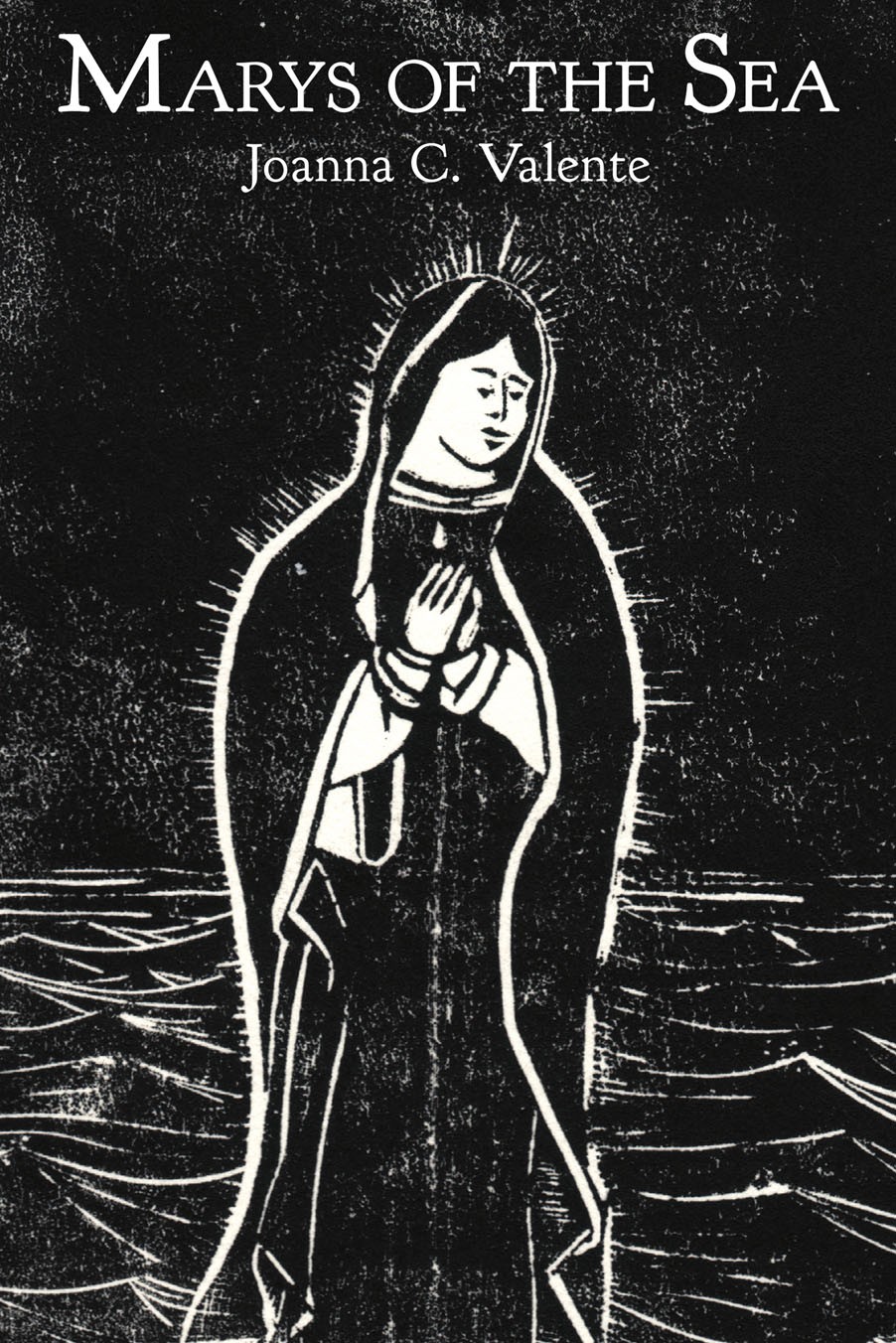ISSN: 1941-4137
POETRY THAT ENACTS THE ARTISTIC AND CREATIVE PURITY OF GLASS
POETRY THAT ENACTS THE ARTISTIC AND CREATIVE PURITY OF GLASS

Kenyatta JP Garcia is the author of Slow Living (West Vine Press) and This Sentimental Education. They are also an editor at Rigorous and previously at Altpoetics and Horse Less Review. Originally from Brooklyn, NY, they currently reside in Albany, NY where they received their linguistics degree and now help run the St. Rocco's salon reading. When they're not writing poetry and/or editing they are getting paid to put boxes on shelves. These graveyard shifts of overnight drudgery provide more than enough time to come up with the short humor that fills their facebook and twitter feeds.
April 6, 2017
Review of Marys of the Sea by Joanna Valente
Edited by Stephanie Kaylor
Edited by Stephanie Kaylor
 Marys of the Sea
by Joanna Valente
ELJ Editions, 2016
reprint forthcoming from The Operating System
It is easy and commonplace to begin a book at the beginning but in the case of Marys of the Sea (ELJ Editions/The Operating System) maybe one can begin somewhere near the middle. One can jump right into the depths, fathoms from the shore and work their way towards coast. One can begin at "at one time, humans crawled on hearts." Here is a place to start. Joanna Valente, in their titular poem which occurs deep into the collection gives the reader a place to put their feet or maybe their bodies. They can place their selves above their hearts and get ready to go.
Marys of the Sea works through a connectedness and fluidity of the sea and the ideas that that image conjures while simultaneously thrusting space between one and the other with the notion of the virgin. This collection of poems is also a collection of parts. It's a pulling together of the body and all that entails/encompasses. If one begins where this book begins, they are introduced to "all mothers eat their children. All children drink their mothers. / My mother … ['s] body no longer holds the many possibilities ahead / before the children." Right here, the reader is brought to an initial understanding of one's relationship to this world. One is given the mother and the child but we are also moved quickly from matron to crone with a hint towards the maiden. These three phases which have become so commonplace in poetry ever since the Greek epics and even before are turned and twisted into something a bit monstrous with the idea of eating but also painful and pained as we move through the book and the story of the virgin mother.
"Let me learn to say sorrow" is in many ways the crux of the collection. Grief cannot escape the body as it reflects upon itself in relation to other bodies. If ones move backwards from "There is No G[od] Train Running" one returns to where this review began, with "Marys of the Sea":
I take this lying down.
My ragged v — you have already
forgotten me — O Father
guide my blood
to tracks where I can dump
my grief in holes.
And yet for the grief, disconnect is not permanent. In "Tarot Reading," the final poem, "she is making love … he plucks her / feathers / They grow back / He uses the others / as bandages …" Without completely spoiling the ending, if sadness is not cured, it is shared. Pain is mutual.
Joanna Valente's Marys of the Sea is a book of movements and shifts until there are no more shifts. The reader begins with mother and child and go through moments of push and pull around love, lust, sex and rape. This book hurts and rarely offers comfort except in its sense of communion. Valente gives the reader all that the Marys can give. Everything is up for examination and exploration. In the dissection of parts, the reader gets to see inside and see what it is that connects us all. Our sorrows might be dissimilar and for different reasons but they are there and worth sharing with one another to rise above commiseration and into contemplation and understanding.
Visit Joanna Valente's Website
Visit ELJ Publications' Website
Visit The Operating System's Website
Marys of the Sea
by Joanna Valente
ELJ Editions, 2016
reprint forthcoming from The Operating System
It is easy and commonplace to begin a book at the beginning but in the case of Marys of the Sea (ELJ Editions/The Operating System) maybe one can begin somewhere near the middle. One can jump right into the depths, fathoms from the shore and work their way towards coast. One can begin at "at one time, humans crawled on hearts." Here is a place to start. Joanna Valente, in their titular poem which occurs deep into the collection gives the reader a place to put their feet or maybe their bodies. They can place their selves above their hearts and get ready to go.
Marys of the Sea works through a connectedness and fluidity of the sea and the ideas that that image conjures while simultaneously thrusting space between one and the other with the notion of the virgin. This collection of poems is also a collection of parts. It's a pulling together of the body and all that entails/encompasses. If one begins where this book begins, they are introduced to "all mothers eat their children. All children drink their mothers. / My mother … ['s] body no longer holds the many possibilities ahead / before the children." Right here, the reader is brought to an initial understanding of one's relationship to this world. One is given the mother and the child but we are also moved quickly from matron to crone with a hint towards the maiden. These three phases which have become so commonplace in poetry ever since the Greek epics and even before are turned and twisted into something a bit monstrous with the idea of eating but also painful and pained as we move through the book and the story of the virgin mother.
"Let me learn to say sorrow" is in many ways the crux of the collection. Grief cannot escape the body as it reflects upon itself in relation to other bodies. If ones move backwards from "There is No G[od] Train Running" one returns to where this review began, with "Marys of the Sea":
I take this lying down.
My ragged v — you have already
forgotten me — O Father
guide my blood
to tracks where I can dump
my grief in holes.
And yet for the grief, disconnect is not permanent. In "Tarot Reading," the final poem, "she is making love … he plucks her / feathers / They grow back / He uses the others / as bandages …" Without completely spoiling the ending, if sadness is not cured, it is shared. Pain is mutual.
Joanna Valente's Marys of the Sea is a book of movements and shifts until there are no more shifts. The reader begins with mother and child and go through moments of push and pull around love, lust, sex and rape. This book hurts and rarely offers comfort except in its sense of communion. Valente gives the reader all that the Marys can give. Everything is up for examination and exploration. In the dissection of parts, the reader gets to see inside and see what it is that connects us all. Our sorrows might be dissimilar and for different reasons but they are there and worth sharing with one another to rise above commiseration and into contemplation and understanding.
Visit Joanna Valente's Website
Visit ELJ Publications' Website
Visit The Operating System's Website
Glass: A Journal of Poetry is published monthly by Glass Poetry Press.
All contents © the author.
All contents © the author.





